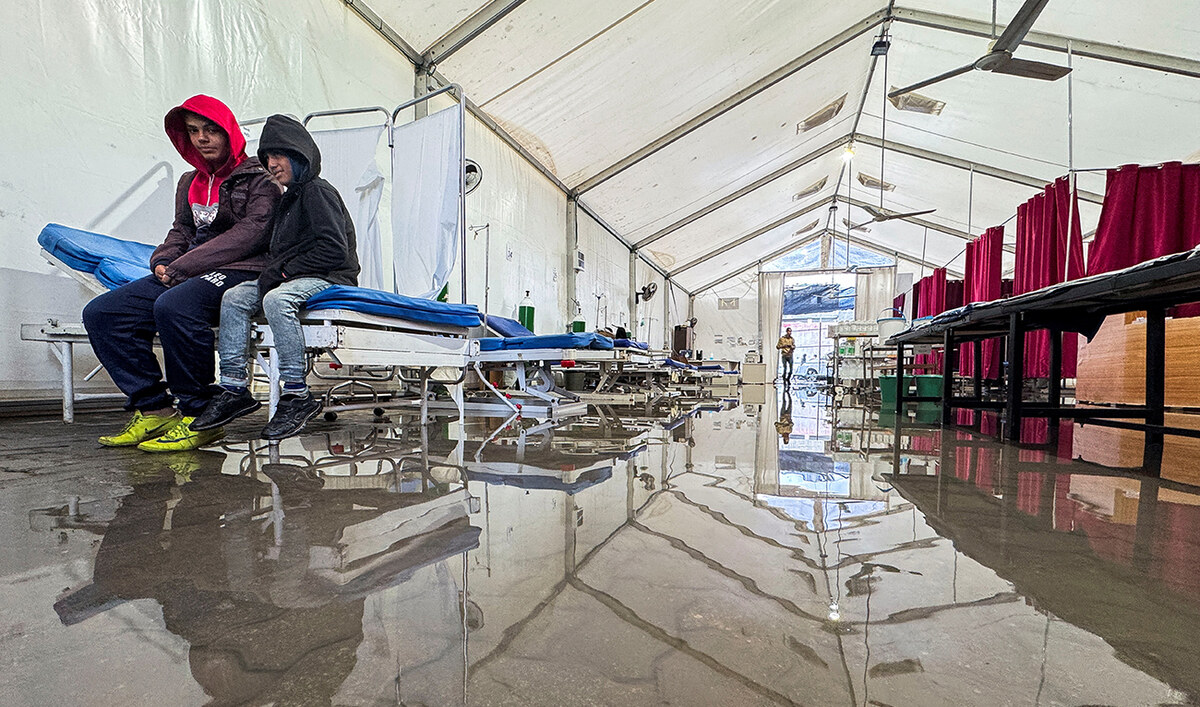CAIRO/DUBAI: Residents are fleeing missile fire and sheltering without food and water amid escalating fighting in the Sudanese city of Al-Fashir, witnesses and aid workers said, adding to fears of an all-out battle.
The city is the Sudanese army’s last stronghold in the western Darfur region. Its capture would be a major boost for the rival Rapid Support Forces (RSF) as regional and international powers try to push the sides to negotiate an end to a 13-month war.
Locals and aid workers fear the clashes could also lead to a new round of bloodletting after ethnically-driven violence blamed on the RSF and its allies elsewhere in Darfur last year.
Many of Al-Fashir’s 1.6 million residents arrived during the violence between Arabs and non-Arabs that killed hundreds of thousands of people in the early-2000s. The RSF’s origins lie in the Arab janjaweed militias accused of ethnic cleansing and genocide then.
In recent weeks the RSF has almost surrounded Al-Fashir, capital of North Darfur state, while soldiers from the army and allied non-Arab armed groups fill the city.
In a sign of mounting ethnic tensions, Mini Minnawi, head of one of the groups, said on X he had made a wide call for fighters to come and defend Al-Fashir, in response to what he said was a similar call by the RSF.
Al-Fashir residents report snipers, stray missiles and army air strikes causing fires in the east and north of the city. Many civilians have taken up arms.
“The situation in the city has been difficult the past few days. Missiles from both sides are falling inside neighborhoods and homes, and getting to hospitals is dangerous,” said 38-year-old resident Hussein Adam.
Medical aid agency MSF said on Thursday that the city’s South Hospital had seen 489 casualties since May 10, including 64 deaths, though it said the real toll was far higher.
Another hospital it supports, which saw 27 people killed last weekend, was forced to shut down after an army air strike 50 meters away, MSF said.
The RSF and army blame each other for the violence.
On Wednesday, the United States imposed sanctions on two top RSF commanders, including the force’s head of operations, for the attacks on Al-Fashir.
“We are prepared to take further action against those who actively escalate this war – including any offensive actions on El Fasher – create barriers to humanitarian access, or commit atrocities,” US ambassador to the United Nations Linda Thomas-Greenfield posted on X.
Experts have raised warnings of impending famine in the displacement camps that dot Al-Fashir. The city also suffers from water shortages, network outages, and high prices.
In one of those camps, Abu Shouk in the north of the city, nine people were killed by stray missiles, camp leaders said on Sunday.
Residents say displaced people from eastern neighborhoods are sheltering under trees and in open squares.
“Most families have moved west, women and children with nothing to eat or drink,” said resident Mohamed Jamal, a volunteer with the local emergency response room.
The army has so far insisted that international aid delivered via Chad for other parts of Darfur pass through Al-Fashir, something that the escalating violence prevents.
Carl Skau, Chief Operating Officer of the World Food Programme, said the agency had trucks ready in the Chadian border town of Tina, but they needed to be able to move soon.
“The window is closing, the rains are coming and we need action in the next couple of weeks,” he told Reuters after a trip to Port Sudan where he tried to negotiate with the army for better access this week.
The UN’s World Food Programme expects more people are being driven to the brink of starvation in other parts of Sudan worst affected by the war including the capital Khartoum, El Gezira state and the Kordofan regions.
“We really need to step up a concerted effort to avoid an even worse catastrophe,” Skau said.
Residents cower as fighting picks up in Sudan’s Al-Fashir
https://arab.news/jq3bx
Residents cower as fighting picks up in Sudan’s Al-Fashir




























